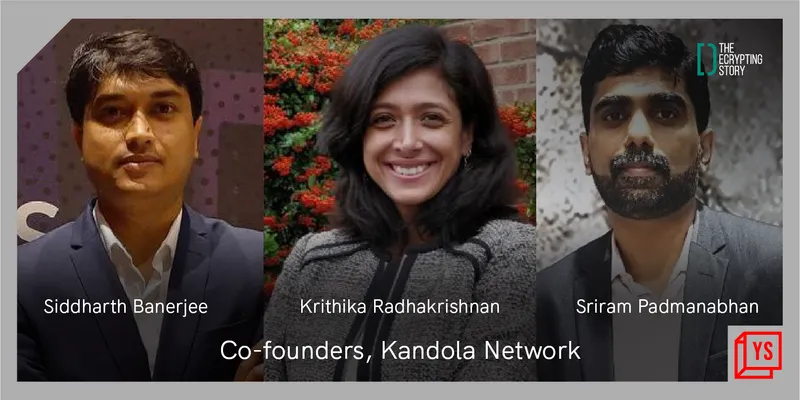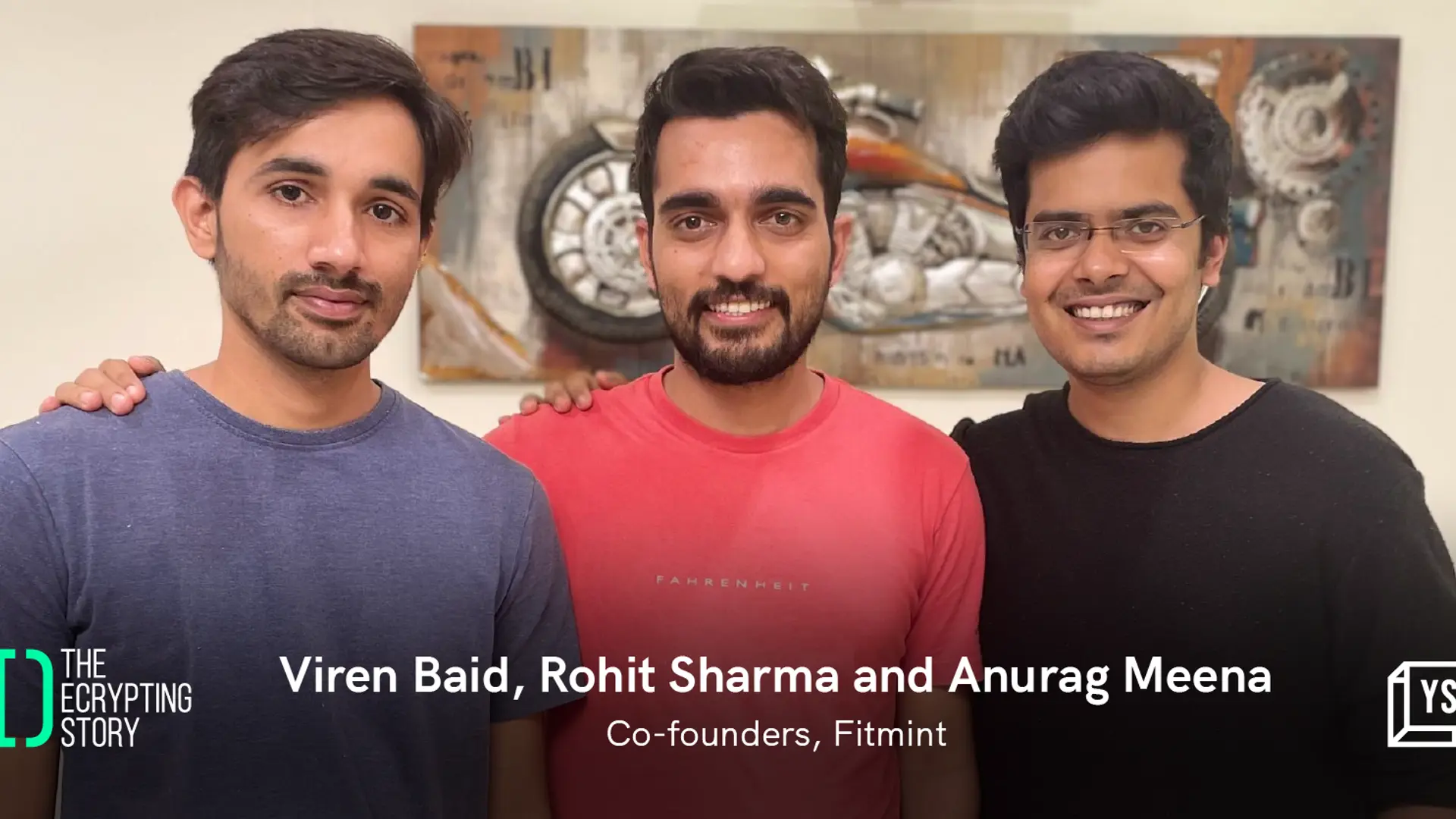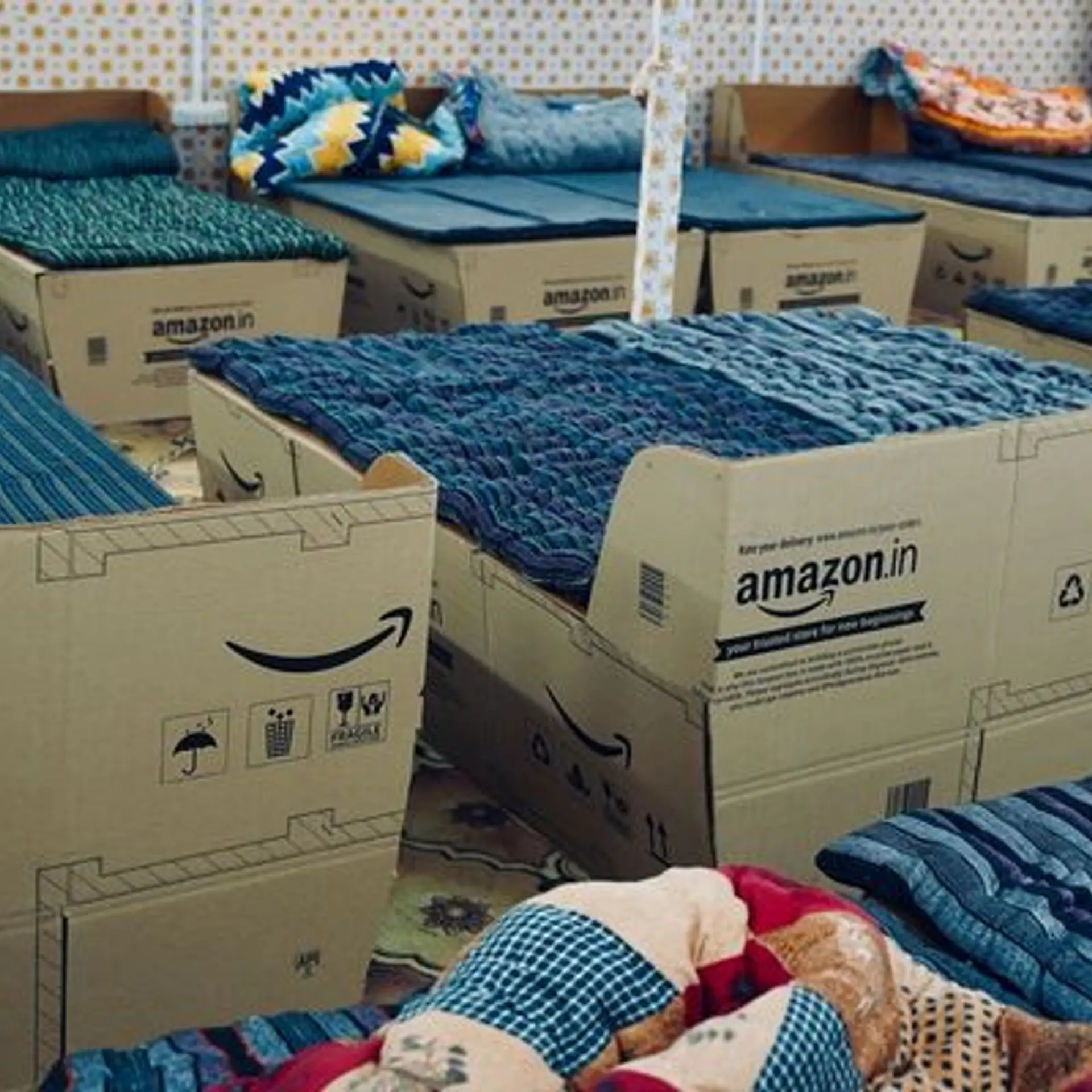How blockchain protocol Kandola Network is addressing customer privacy, security in IoT
Siddharth Banerjee, Krithika Radhakrishnan, and Sriram Padmanabhan co-founded Kandola Network to ensure customer privacy and security in the IoT space.
Over the last few years, the Internet of Things (IoT) market has grown at a breakneck pace. The global IoT market size was $ 330 billion in 2020 and is expected to increase to $ 875 billion in 2025, at a compound annual growth (CAGR) of 26.9 percent during this period. But an increase in the number of IoT devices also brings with it a rise in security breaches, with the possibility of large-scale cyberattacks remaining high.
Having previously worked in the IoT space, Siddharth Banerjee, Krithika Radhakrishnan, and Sriram Padmanabhan recognised that the primary concerns of the industry were data security and privacy.
In an attempt to ensure data privacy and instate security mechanisms, the trio co-founded — a decentralised network protocol that addresses privacy and security, as well as enables digital identity and ownership of IoT NFTs (Non-Fungible Tokens).
Siddharth, Founder and CEO of Kandola Network, explains in a conversation with The Decrypting Story, “In the last few years alone, many IoT cybersecurity laws have been adopted around the world, including California Internet of Things Law and the Internet of Things Cybersecurity Act 2020 – all of which try to resolve the data privacy issues. However, most businesses today collect and use customer data. We did not want to do that because we had previously worked as a solution provider in the IoT space and didn't want the consumers' information to be misused."
The journey
In 2006, Krithika was Vice President at Goldman Sachs; Fixed Income Derivative Operations, India, while Sriram and Siddharth were working as software developers for SunGard, an American multinational corporation.
"Sriram and I are good friends since 2006, and when we met in 2016, we were both very passionate about starting an IoT solutions firm,” Siddharth reminisces.
The same year, Krithika joined Siddharth and Sriram to kickstart , a Bengaluru-based home automation firm that has established an ecosystem for smart living. After working in Cosine Labs, the trio decided to launch Kandola Network.
“When I met Siddharth and Sriram, I was thrilled by the amazing dynamics of the team and I realised this was the dream team, and so I onboarded,” Chief Marketing Officer and Co-founder Krithika adds.
The name of the company has an interesting origin. She explains, “In Sanskrit, the word Kandola means ‘safe house’, and our company’s ecosystem is designed to ensure security and privacy in IoT space.”
“We understood that IoT solutions would be difficult to implement without proper data privacy and security mechanisms. That is something we wanted to change in the IoT industry, and specifically, ensure end-to-end data security. One of the things we realised that was completely missing in the Web3 ecosystem was real-time communication. So, these problems presented themselves and we are attempting to address the issue and bridge that gap,” Siddharth says.
How the platform works
Kandola is a Layer 1 chain that will implement the Proof of Stake (PoS) consensus mechanism, and the company is building a decentralised IoT network protocol that addresses the privacy and security of users.
Siddharth further explains, “We are developing an IoT3 network that will ensure real-time transactions.”As the (third-generation IoT) IoT3 network will offer scalable data and users can easily exchange with other apps. Apart from the decentralised protocol, the firm is also building firmware on hardware devices and Kandola’s SDK (software development toolkit) will act as a server and will be available on both mobile and web.
In order to make the IoT platform convenient for the users, the startup claims to offer a complete end-to-end solution with a ‘Chip-to-Cloud’ approach, as this would enable the transfer of data to a decentralised cloud through secure hardware.
“With the implementation of an end-to-end solution, users will be the digital owners of their data. We intend to create an economic model that allows users to trade their data for value,” Siddharth adds.
The Bengaluru-based startup is currently an eight-membered team and offers several Web3-based services that aren't limited to the IoT industry. Some of the features include Web3 real-time storage and analytics persistence, Web3 Implicit NFTs for every transaction/message, and even Web3 digital identity for people, entities, and devices.
Several IoT blockchain companies including Helium, Chronicled, Arctouch, Filament, and NetObjex have emerged in the space.
Siddharth explains, “There is a lack of data security and interoperability in the IoT space which increases complexity as well the costs for the users. At Kandola Network, we are not only working to ensure user data privacy, but we're also working to create developer-friendly, easy-to-use APIs and interfaces."
The startup is also introducing a token – EKAH, and users holding EKAH tokens will have the access to participate in the governance of the network.

Future plans
On the future plans, Siddharth says, “We are planning to expand our team and we are currently looking to raise funds through a seed round.”
“In the next few months, we plan to launch the TestNet (a test network to test new features or test Dapps – decentralised applications) in IoT3 network. After the launch of TestNet, the startup plans to launch a mainnet (main network) — the final, and fully functional version of the blockchain,” Siddharth adds.
“Once the mainnet is up and running, we will onboard manufacturers and solution developers. We will be a platform for games, metaverse, Web3 chat applications, Web3 social applications, and for IoT. We want to demonstrate that Web3 can transcend beyond finance and NFTs, and can have a positive and meaningful impact on people's lives,” he signs off.
Edited by Kanishk Singh










